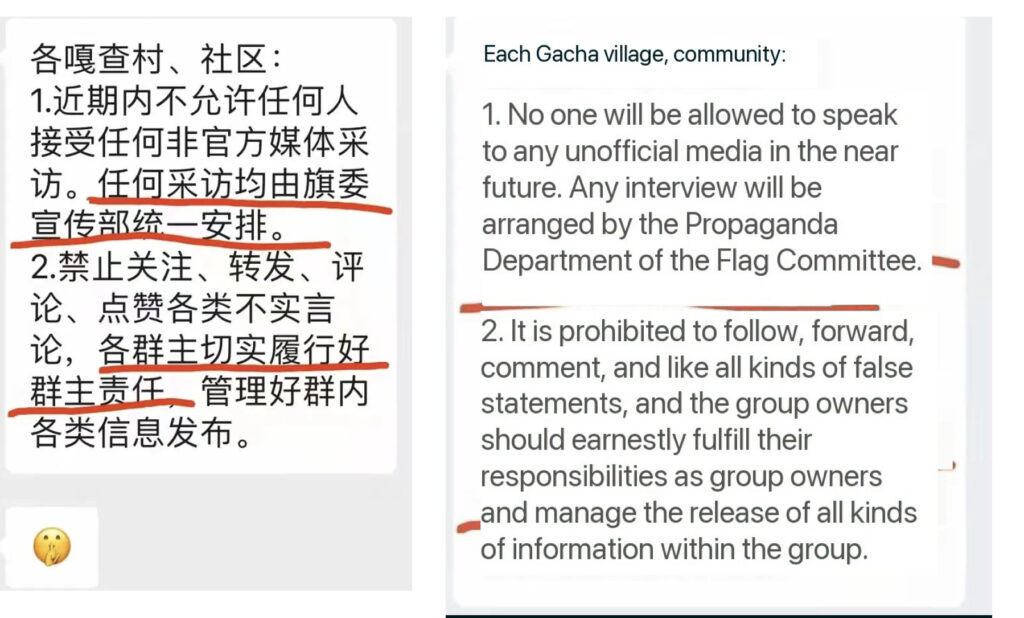There was once abundant groundwater, it was once a paradise for migratory birds, and it was once a pearl on the grasslands. On the land of Ordos, Inner Mongolia, the crazed plundering by polluting companies and the nearly silent resistance of people and birds against energy and ecological environmental issues are unfolding here and now…
Only with the courage to face the problem is there a possibility of gradual repair and improvement…
Latest situation: In recent days, facing public opinion and supervision, the local government of Tuke Town in Ordos has used machinery to clean up the polluted sludge in the lakes that have been polluted for many years, planning to purify the water with sand… But this is just the first step of change (which coincides with the central environmental inspection team’s presence in Inner Mongolia). How to proceed with deep and thorough governance, how to eradicate pollution from its roots. We look forward to a sincere response from the local government, rather than just hastily deleting posts whenever an incident occurs. Deleting posts is a manifestation of insecurity and inaction, which not only directly undermines public trust but also leads to strong backlash from all netizens concerned about the issue, who will continue to monitor the situation through other channels comprehensively.
We particularly want to ask the local polluting companies: “You have taken away coal, natural gas, and other resources, what can you leave for the local villagers and their descendants?”

《Spread Your Wings》
Timeline:
On September 5, 2021, the day after we published “Investigation into Heavy Metal Pollution in Ordos, Inner Mongolia,” it was forcibly deleted by mysterious forces.
On the afternoon of September 6, 2021, the Wushen Banner in Ordos issued a notice to all the Gacha villages:

On September 7, 2021, the local government called every household in the village to count the patients and asked the villagers to sign; more than 20 people braved the rain to pick up bird carcasses along the lake and destroy the migratory bird carcasses.
Subsequently, the local government hired 2 people specifically to guard the lake with a company of $4,000 per month to prevent us from going to the site again for investigation as well as picking up migratory bird carcasses at any time.
On October 9, 2021, a locally commissioned PR firm attempted to prevent us from continuing our investigation with a disguised bribe of $50,000 per quarter $200,000 per year. In case the PR company didn’t understand, we refused in four languages: “Artist Team Refuses $200,000 per Year in 4 Styles” (click to read).
In 2022, we are still continuing (including providing the real situation to the Central Environmental Protection Inspection Team)… We hope that the local relevant enterprises and departments can face the problems, treat the migratory birds that fly to Inner Mongolia from all over the world every year as guests, and take care of the polluted homeland… because the ultimate price of pollution is the increasingly precious groundwater, soil, the state-protected migratory birds, the people!
Once a global migratory bird transit site,
Today a lake of migratory bird deaths
The heavy metal pollution incident in Tuk Town, Ordos, Inner Mongolia
At the end of the summer of 2021, we invited two heavy metal bands (“Old Head Music” and “Soil Amendment”) to rush to the pollution site to kick off the #HeavyMetalRuralTour2021#, attempting to use heavy metal music to draw attention to heavy metal pollution, promote improvements by the relevant enterprises, and call on the relevant departments to make rectifications.
刚孵化的候鸟,没几天就死了
国家级保护动物,天鹅,也死了
图克镇,位于鄂尔多斯西南部,在乌审旗最东端,下辖10个嘎查村,74个农牧业社,总人口4686户15064人,其中蒙古族4669人。
查干淖尔湖,是典型的草原湖泊,在蒙语中意为白色的湖泊。查干淖尔湖面积大,当地也有许多人称之为“海”,是图克镇人赖以生存的最重要水源。
查干淖尔湖,是典型的草原湖泊,在蒙语中意为白色的湖泊
2021年4月中旬,调查者来到查干淖尔湖,发现湖水呈现不正常的黄绿色。绕着湖岸边走几分钟,调查者就看到来很多候鸟的尸体,有的尸体还残留着羽毛,有的只剩下尸骨。
居住在查干淖尔湖附近村庄的田大叔十分笃定地说,“自从中天合创这些化工厂来到这里后,大批鸟儿陆续死亡,十分惨烈。”
大批候鸟死亡,十分惨烈
调查者当日沿湖行走 还发现刚死不久或濒临死亡的候鸟
天鹅也死了(国家二级保护动物)
原来,查干淖尔湖位于全球候鸟八大迁徙路线之一的东非西亚迁徙线上,每年都会吸引大批候鸟。
田大叔回忆,曾经的查干淖尔湖,每到秋冬就有成千上万的候鸟来这里觅食,还有很多天鹅,十分壮观。春夏时,湖边蛙声欢快,草原中特有的大蚊子也到处飞舞着,一片生机。
“自从中天合创来后,一切都变了。候鸟一年比一年少,蛙声也弱小了,就连草原的大蚊子也差不多死没了。大批大批的候鸟死在查干淖尔湖,这是从前从未见过的场景,死鸟中有天鹅,还有许多长脚大鸟。”
让田大叔更加心痛的是,很多刚孵化出来的鸟儿,出生没几天就死了,“他们本来是来这里过冬的,没想到是送命的。”
喝了湖水,牛羊也病死了
田大叔还抱怨,就连他在湖里养的鱼也全死了。
田大叔是牧民,牧民们没有吃鱼的习惯。随着外地人的增多,牧民们也开始在查干淖尔湖投放各类鱼苗。据牧民说,“以前湖水干净肥沃,还能把鱼养到二三十斤肥美。然而,现在的湖水里,早已养不活鱼了。”
不仅如此,喝了湖水的牛羊,也逐渐病死了。调查者了解到,对查干淖尔周边的居民来说,数十只到上百只牛羊,几乎是他们所有的经济来源。自从查干淖尔湖受污染后,牛羊喝了湖水,没几天就会死去。
村民说,自从查干淖尔湖受污染后,牛羊喝了湖水,没几天就会死
牧民许阿姨向调查者哭诉,就在上个星期,她家死了五六只羊,“我们的羊在查干淖尔湖水喝水,经常生病,兽医来检查,说是得了尿道结石。如果结石没有及时取出来,尿液回流到羊的全身,羊会憋尿而死。这样死的羊,卖也卖不得,只好找个地方埋了。”
牧民们说,现在他们只能将查干淖尔湖周边围住,不让自家养的牲畜再靠近湖边。担心湖周边的井水也被污染,村民们也不再喝井水,改喝自来水和矿泉水。
经检测,查干淖尔湖化学需氧量超标12倍,氟化物超标2.6倍,铁超标2倍
田大叔也是一位脑梗患者,今年七十多岁,他捞起衣袖、裤脚给调查者看,手上、脚上都是斑斑粒粒的湿疹。田大叔回忆,他去北京看医生,医生见状问他“是不是附近有重金属污染?”田大叔才想起,他在查干淖尔湖边种了梨树,给果树浇水时趟过湖水,碰到了受污染的毒水。
“都是中天合创偷偷排放毒水害的。”田大叔说。
村民王四喜在看守所蹲了9个月,被判刑5年,缓刑4年。那四年间,他被电子监控,哪里都去不了。他告诉调查者,“事情没解决,倒把提出问题的人解决了。”
钻井污泥污染井水,重金属都超标
图克镇拥有丰富的矿产资源,除了煤矿外,图克镇细细的沙子上还分布着大大小小的中石油天然气井。
陶报嘎查的草地上就分布着不少的天然气井。调查者从村民口中得知,长庆油田公司第五采气厂在陶报嘎查搜集天然气,虽然给了村里每家每户一定的天然气井补贴,但钻井污泥却占用了农民的土地,并且未经处理就被就地填埋。
此后,问题接踵而来。从前村里人身体素质很好,如今村子却成脑梗、高血压、脑瘫高发地。
达尼斯是陶报嘎查土生土长的牧民,靠着养羊、种玉米为生。油田公司进驻后,他检查出了脑梗,一直都在吃药治疗。他的母亲和阿姨已经因为脑梗而去世了。他的嫂子,也逃脱不了脑梗的命运,如今必须拄着拐杖才能慢慢地走路。
养的羊,也时不时就死一只。家里的狗,身子半边一瘸一瘸地,走路颠颠颤颤,达尼斯说看这症状也像极了脑出血(即脑瘫),调查员还发现,这只狗有尿失禁的情况。
种种奇病让达尼斯怀疑是家旁边的气井污泥所致,他拿自家井水去做化验,发现铁、锰、挥发酚、氟化物、钡、菌落总数等多个指标超标,不符合GB5749-2006<生活饮用水卫生标准>。要知道,饮用水中过量的铁和锰会导致食欲不振,呕吐,腹泻,胃肠道疾病等。人体内过多的铁会影响心脏,甚至比胆固醇更危险。而挥发酚具有隐蔽性、持久性、蓄积性的特点,酚类物质可以蓄积在体内各脏器组织内,造成慢性中毒,引起头痛、出疹、皮肤瘙痒、精神不安、贫血及各种神经系统症状。酚类物质在生物转化的过程中,还会引起细胞死亡或诱发肿瘤。氟化物轻则牙氟中毒,使皮肤发痒、疼痛、引发湿症及各种皮炎,严重者致残性氟骨症。
此后,达尼斯只喝矿泉水,不再喝井水。
根据GB5749-2006<生活饮用水卫生标准>,曾经世代饮用的井水,目前其微生物、重金属等毒理学指标已严重超标
另一个严重的环境问题是,中天合创等企业大量抽取地下水,也是导致乌审旗地下水位急速下降、用水出现紧缺的重要原因。草场干旱,原来许多冒地下水的湖泊已枯竭。这对原本降雨量极少的鄂尔多斯来说,无疑是雪上加霜,这几年,地下水资源急剧减少,还得从包头调取黄河水用作生产用水。这也极大地加速了草原沙漠化。
然而,在图克镇这个地方,就有中煤、中石油、中天合创等20多家耗水企业。这些煤化工企业不仅大量消耗水,像葫芦素煤矿的企业还把大量超标矿井废水排放到湖里,残害鱼鸟牛羊以及图克镇居民。
调查者发现,当地环保部门虽然多次的处罚中天合创等企业的污染行为,然而,这些煤化工企业依然持续违法,顶风作案,只是把明目张胆的排放污染变成不定期的偷偷排放。
中煤中石化等企业把大量废水排放到湖里,残害鱼鸟牛羊以及图克镇居民
村民们控诉,鱼鸟死了,牛羊也养不活,水也不能喝了,草场被污染,人也病了,他们的未来该怎么办?
调查者们2021年8月中旬又来到图克镇,发现查汗淖湖湖边的候鸟尸体更多了,走五步就可以看见不同候鸟的尸骨。
调查者买了60枝菊花给候鸟送葬,却发现,死去的候鸟多达几百只
调查者们买了60枝菊花给候鸟送葬,却发现,候鸟尸体至少有几百具。曾经的全球候鸟迁徙地,如今成了候鸟的死亡之湖。而这里的居民,也将面临如这些候鸟一般的命运,要么在这里死亡,要么迁徙他乡。
图克镇 × 小壕兔
图克镇隶属内蒙鄂尔多斯市,与陕西榆林市的小壕兔乡是跨省邻居,两个地方都位于中国著名的能源带核心。2018年,小壕兔水污染震惊全网,涉事煤矿和中石化停产整顿,国内外媒体持续报道,推动地方政府为全乡各村打深水井,饮用水安全得到基本的保障。图克镇与小壕兔的污染源高度重叠(煤矿和天然气公司违规排污)。
附小壕兔媒体报道链接:
《陕蒙交界小壕兔:十年污染,羊死人病,中石化泥浆污染该担几分责?》
Lorem ipsum dolor sit amet, consectetur adipiscing elit, sed do eiusmod tempor incididunt ut labore et dolore magna aliqua.
“>